It seems a strange characteristic of each blog post I’ve written since attempting to become an English teacher in India, that while they’ve featured plenty of English, there’s been very little use of it to discuss teaching. There’s been so much going on in the periphery that has seemed remarkable or exceptional in some way that the very reason for my being here has faded into the background. I suppose the truth is that while there’s plenty about my time teaching here that is novel to my experience, really, it’s been the one thing that hasn’t seemed so exceptional, the one thing I can rely on to be really pretty predictable; an oasis of relative normality in an ocean of experiential shift and cultural upheaval. In all honesty, it hasn’t even factored as a huge percentage of my time here so far. There are only two English classes a day, apart from weekends, when students have a half day of other classes on Saturday, we have our weekly teachers meeting, and a two hour Dharma class instead (Think Buddhist Sunday School). One of these daily classes during the week is with the young women in the morning, one with the young men in the afternoon and more often than not, it is simply a case of repeating (with a few tweaks and twiddles) the first class with the second group.
| For the first few weeks, it was uncommon to be in the classroom alone and we were doing a lot of team teaching. This phase is starting to recede a bit now as we each make time for lesson preparation or other tasks and errands, but it was a wonderful rediscovery and hopefully won’t stop all together. In my first year in the classroom (academic year 2002/03), classes were actively timetabled to feature team-taught periods and it was a real joy to support each other, share delivery, improvise off unexpected moments of inspiration (or disaster!), almost like actors might and have the ‘so, how did that go!?’ conversation afterwards. A robust course, whatever the subject, should have input from various brains, I think. Not just for a greater breath of subject knowledge, but the different life experiences and personalities of different practitioners is bound to make a difference too. One of the factors that eroded my love of teaching in the UK was this gradual drift from genuine teams delivering substantial content to more than one year where it ended up being just me. Course leader, course tutor, only subject teacher. Just the one brain-full to go round the class. |
| I’ve always thought that course content is essentially greater than the sum of its parts and felt sorry for any group who only ever had me (or any other individual teacher for that matter) teaching them. It never seemed adequate. With a good team, if nothing else, you can play to each other’s strengths whilst planning and we’ve certainly been doing plenty of that! Shakyajata is by far the most experienced among us, not just in terms of having taught in India for many years but also in her experiences as a Teacher of English before coming here. She’s been fronting a lot of the planning decisions as well as much of the more technical grammar points in active teaching. Mark is, a little like me, making a shift from his main subject, Science, to English teaching but before leaving the UK he attended an intensive TEFL course which sounded like a very useful, if slightly stressful, experience. |
| It’s not as if the cessation of my UK teaching career was exactly pleasant either (you can read the details here if you don’t already know them!) and before I arrived, I’d been out of the classroom for over a year, so I’ve not been feeling very confident with planning or delivery. Thankfully, one thing I’ve never lost any confidence in is drawing and I’ve been making the most of the generous preparation time that is comes with living on site to do lots of that! He’s been getting really stuck into his new direction, with lots of impressive ideas and confidence, happily taking on extra classes for non-residential students at the Indora campus in the evenings and even spending a lot of his ‘down’ time helping the young men’s community practise. And then there’s been me! I’ve not shared in Mark’s confidence with the language teaching. My TEFL was conducted entirely online and whilst there were bits I breezed through pertaining to general classroom management, delivery theory and assessment processes, there was also a lot that I sort of managed to limp through off the back of a lot of note taking and hope for the best in the multiple choice tests. There were more in depth written assignments but no actual teaching practice. I tried to arrange some experience by volunteering as an assistant at my local FE college but it never transpired. |
| As a visual learner myself, whilst I recognise the need to present information in a variety of ways, I definitely feel more fired up about lessons with a strong visual content. The students do seem to enjoy it too. There’s something very reassuring about going into a classroom with a couple of hours preparation under your belt. I never was one who liked to ‘wing’ it and I think I was one of the few teachers in my last team who did actually have filed lesson plans for each lesson, much to the apparent disgust of some more ‘natural’ colleagues! Through being able to produce lots of visual content, I’ve felt like I’ve managed to chisel out a tiny nook of comfort zone in an otherwise entirely new suite of (occasionally hostile) experiences. Being aware of my learning style bias has been important, but given the breath of backgrounds in our team, I don’t feel too worried and have thought how much I’d enjoy having three different teaching approaches myself; a visual artist, a singer/English professional and a scientist! One benefit of team teaching is that even when you are taking a less active role, you are still in a really strong position to observe your colleagues and I’ve been learning a lot, not just about how to teach English but about the subject itself. Did you know that the difference between when you use ‘a’ or ‘an’ is in whether or not the next word starts with a vowel?! It seems so obvious when someone says it (a mouse, an elephant) and I’d have known if someone had got it wrong; but I’d not have been able to pin down why. Ahhh, bring back the relative certainties of red plus blue equals purple any day! Nevertheless, I’m badgering on, nibbling away at new titbits of knowledge as they present themselves and, slowly, I suppose, I must be making some progress! I’ve had some positive feedback from those who have seen my classes anyway, and the students are always smiling. Aside from mild feelings of inadequacy alongside my more experienced or more confident colleagues, there have been many discoveries I have been enjoying about my unusual teaching renaissance and though there may be things about my Indian experience that leave me wanting (Oh, for the joys of a simple baked potato!), I feel my time in the classroom has been feeding a deep thirst that has been building for some months (or even years). The feeling that I am able to provide some assistance to others, meaningfully and in a way that empowers them to improve their own experiences of life is unparalleled in the sense of satisfaction it brings me. Feeling not just that I am part of a team delivering a much needed service but that the recipients are genuinely appreciative and understand the difference education can make to them is a rare luxury. I have found of my teaching in the UK that an almost resentful belligerence to receiving it is a sad symptom of the way we approach free, equal access to education. Many young people see school and college as a necessary evil to endure, a bit like a reluctant gym member; something one must be seen to be doing but with no real sense of purpose or faith in the outcome. |
Perhaps this sense of obligation is at the root of an apparent trend to overemphasise the responsibility of the teacher in the learning process. To my mind (and this works equally when I am the student), a teacher should be a facilitator of appropriate conditions for learning to take place, but it is the student who must necessarily take a leading role to ensure it actually happens. I’m aware that may sound like a teacher trying to back off responsibility but I do not underestimate how much work or skill is involved in cultivating those conditions; simply aware that the seeds from the ripest fruit in the world cannot grow unless they are embedded in fertile compost that is consistently watered and kept in appropriate light and heat.
| As well as the aforementioned team teaching, one refreshing difference here is that because we are not following a set qualification, it is entirely up to us to decide how to pace the content. Yes, we must make sure our learners receive the basis in the English language they need, but the freedom from deadlines and minimum unit content has been like taking a giant weight from my shoulders. Shakyajata is wise enough to recognise that, at least in this instance, less is most definitely more and as such we are planning for small amounts of easily digestible content that stretch enough, but never too much. |
A little and often approach to delivering high quality, meaningful information is a very new one compared to my conditioning to churn out lots of content in about half the time really required, which too often results in low quality, sporadic and unreliable learning. Another feature of this temporal spaciousness is that we have plenty of time to revisit, reinforce and repeat. Gone are the days of ‘tick the box and move on to the next thing’ teaching. We move on, when they are ready to. Funnily enough, they do seem to be absorbing the knowledge pretty quickly anyway and we’ve stuck, so far, to our ‘module’ plan.
Perhaps it is partly due to this appropriate pacing, partly due to a genuine sense of progress in themselves and partly due to a generally very grateful attitude to learning in the first place that it has become common for classes to be concluded with a round of applause and happy shouts of ‘Thank you m’am!’ The first time this happened, I had to check they weren’t being sarcastic, but I don’t think that’s really a feature of Indian humour. Is this due to a cultural difference? The fact that these students are so incredibly grateful for any learning opportunities when coming to us form a background where only the high-caste privileged born are able to afford or socially access education? Compared to the UK, where I feel free education to a certain standard has become regarded as such a basic right it’s barely valued. You can lead a horse to water but that’s as far as it goes. Sadly, in the UK, if students aren’t motivated to put in their share of effort on the learning journey it is still more often the teacher who is blamed for not trying hard enough, not differentiating successfully, not being creative, exciting, engaging. I think it must be more complicated than this alone and I know from Shakyajata that it is not always the case that students blindly accept whatever they are given at Aryaloka simply because it’s free and it’s better than the nothing they would otherwise have.
Perhaps it is partly due to this appropriate pacing, partly due to a genuine sense of progress in themselves and partly due to a generally very grateful attitude to learning in the first place that it has become common for classes to be concluded with a round of applause and happy shouts of ‘Thank you m’am!’ The first time this happened, I had to check they weren’t being sarcastic, but I don’t think that’s really a feature of Indian humour. Is this due to a cultural difference? The fact that these students are so incredibly grateful for any learning opportunities when coming to us form a background where only the high-caste privileged born are able to afford or socially access education? Compared to the UK, where I feel free education to a certain standard has become regarded as such a basic right it’s barely valued. You can lead a horse to water but that’s as far as it goes. Sadly, in the UK, if students aren’t motivated to put in their share of effort on the learning journey it is still more often the teacher who is blamed for not trying hard enough, not differentiating successfully, not being creative, exciting, engaging. I think it must be more complicated than this alone and I know from Shakyajata that it is not always the case that students blindly accept whatever they are given at Aryaloka simply because it’s free and it’s better than the nothing they would otherwise have.
| Maybe then, it’s simply that given the freedom to operate as professionals, the time and space and trust to assess what our learners need and then respond to that thoughtfully and meaningfully, we are able to deliver a quality educational experience which facilitates genuine learning and meaningful progression, not just the ability to meet hollow criteria that doesn’t actually demonstrate anything beyond a bureaucratic dependency that never really benefits anyone. Maybe our learners are actually learning. And maybe they know that. Maybe that’s what they are grateful for. Maybe that’s (at least partly) why they invite us to dinner and want to play football with us at the weekend! I have been here for six weeks now and it’s always about this time in a course where you really begin to see personalities emerge as you get to know a group. The naturally compromised nature of verbal communication to form a rapport might have had something of an impact on this but it’s funny the things you notice. Still, despite language barriers, personalities shine through. Hidden depths are revealed, life stories are told and I find myself become increasingly fond of every little idiosyncrasy I encounter. It’s always hard to say good bye to a tutor group you’ve really enjoyed teaching and though I don’t think for a moment that we’ll be able to discuss our deepest feelings in any detail by the time the date of my departure arrives, I somehow already know that these groups are not going to be among the easiest to have to say good bye to. The experience of waking up at the weekend and realising I’m actually a little sorry to not be in the classroom is something I’ve not felt for a long, long time and it’s good that this is happening despite being in very new territory with my teaching. It seems like the good old days of teaching visual language may not be too far away anyway. |
I have been asked to teach Photoshop (what music to my ears!) and hope to start doing so next month. We’ve still got a bit of negotiating to do but I’ve started planning and am looking forward to begin back on familiar ground. It’s going to be a challenge, no interactive whiteboards here to demonstrate on, no Virtual Learning Environment to upload materials and content to, not much in the way of student access to the internet during classes either; but I’ll get there. My first ever taught lesson ended up being painting with only red paint and no brushes or paper. We got through and learned a lot about achieving texture, on cardboard, with various alternative tools. Where there’s a will, there’s a way and that resourcefulness is something that India is very good at teaching. It may end up being a bit unconventional but I don’t think I’ve ever been described as ‘conventional’ anyway. That’s probably just as well!
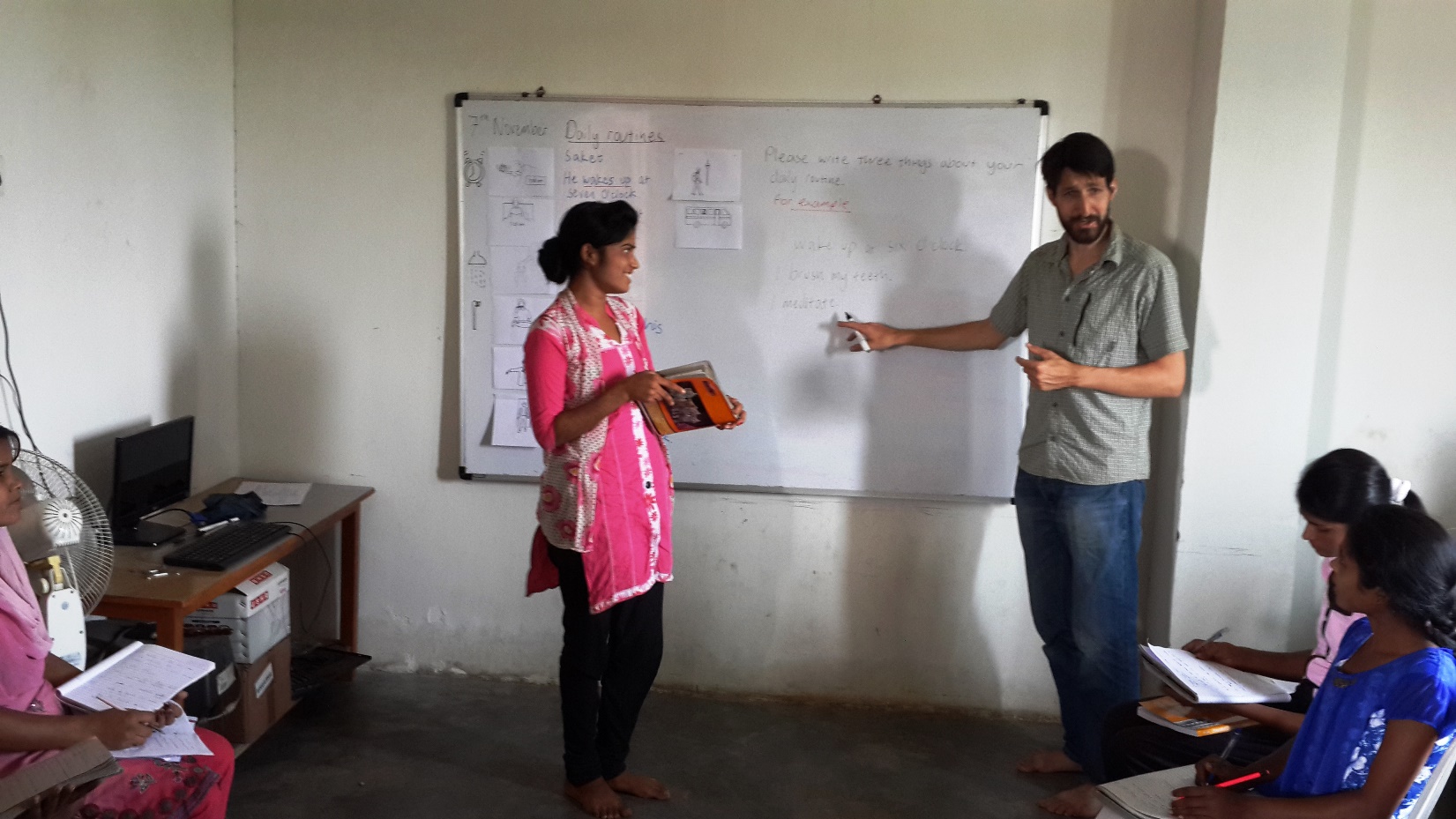
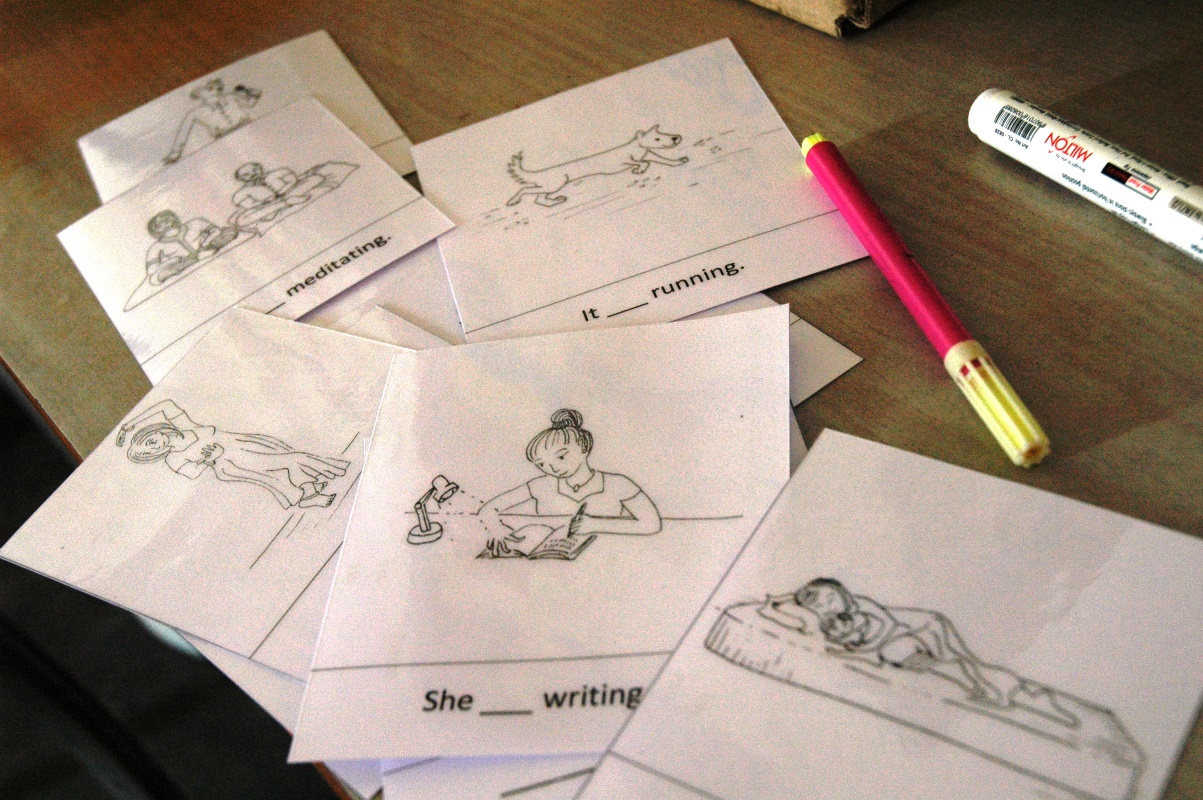
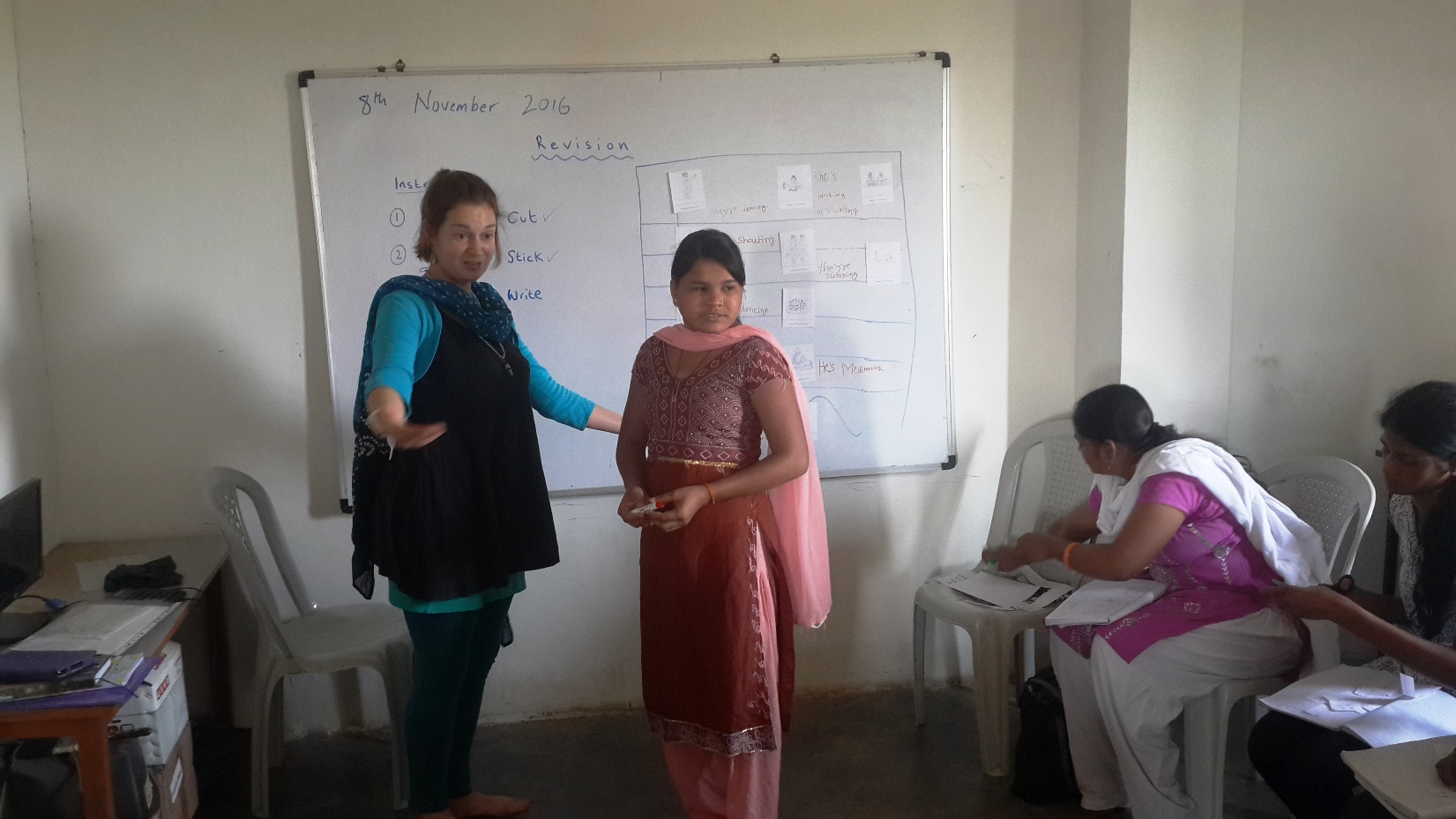
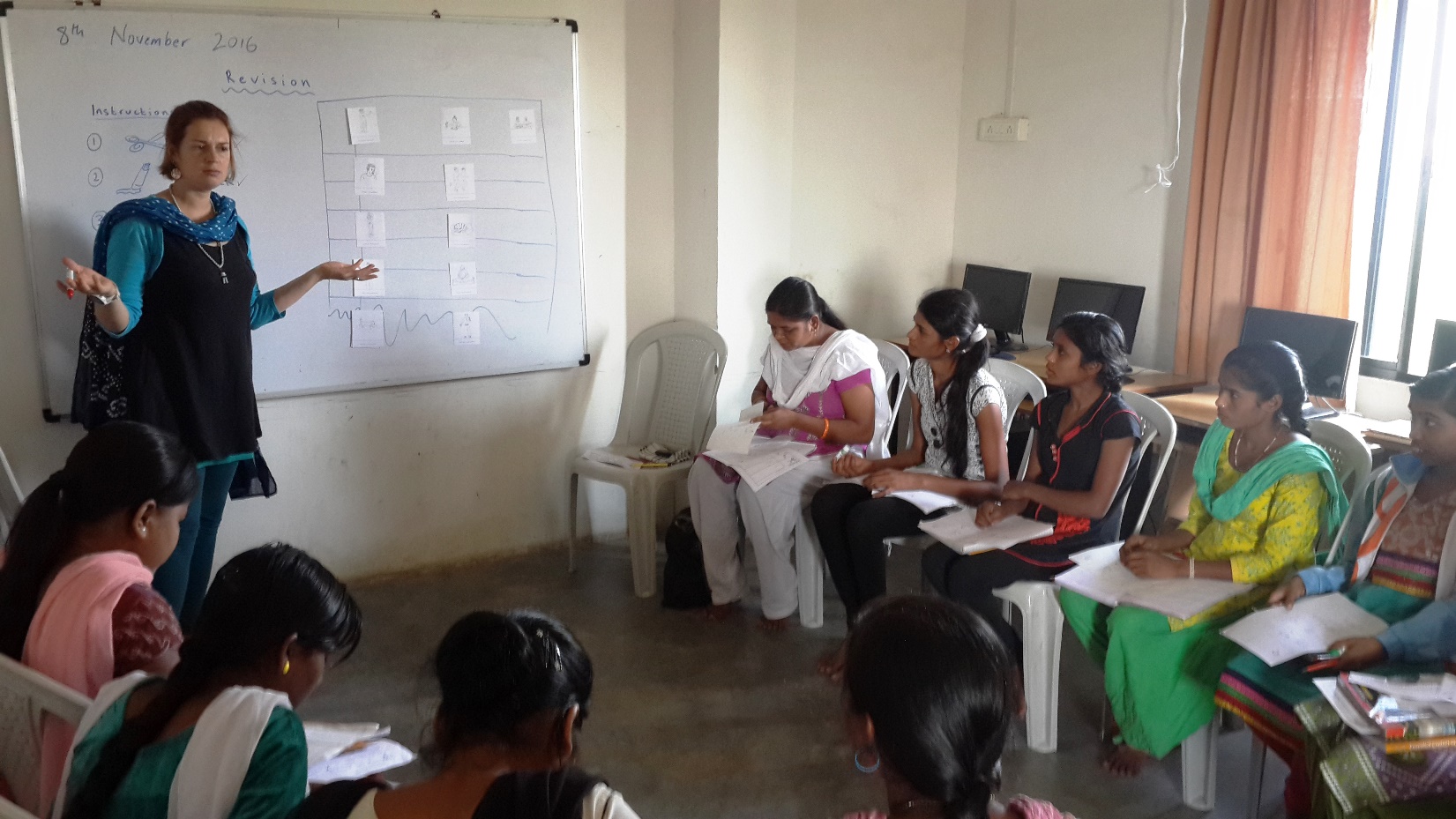
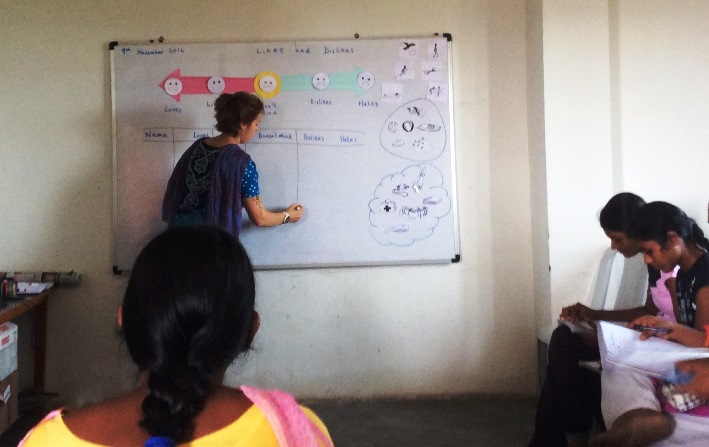
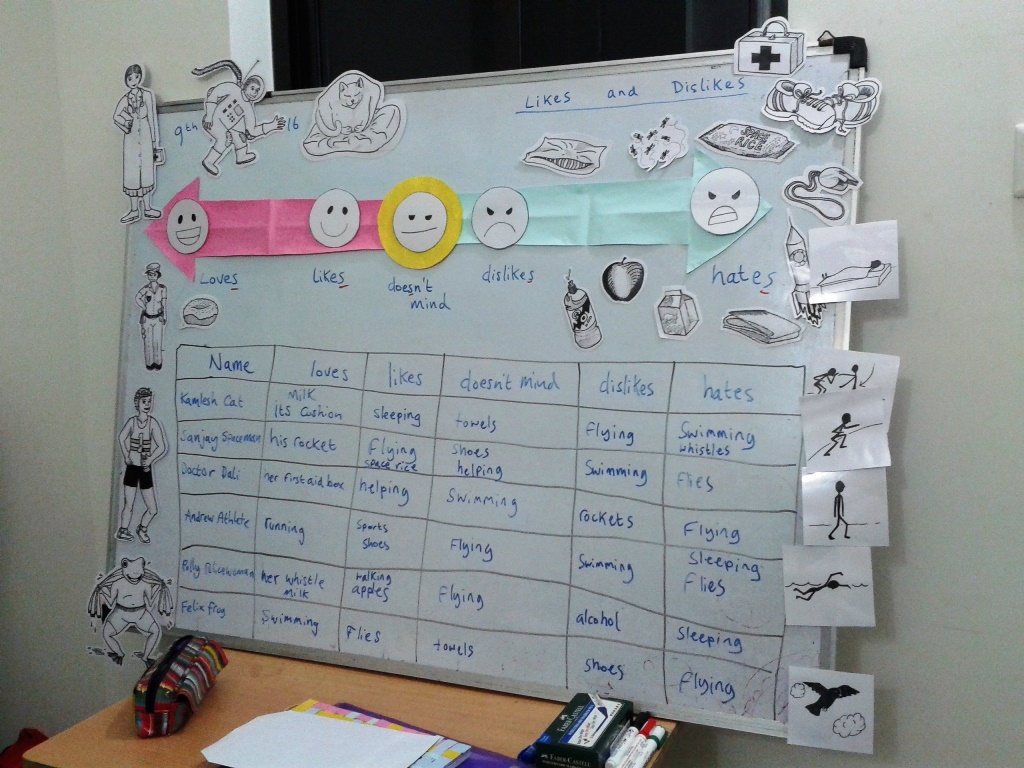
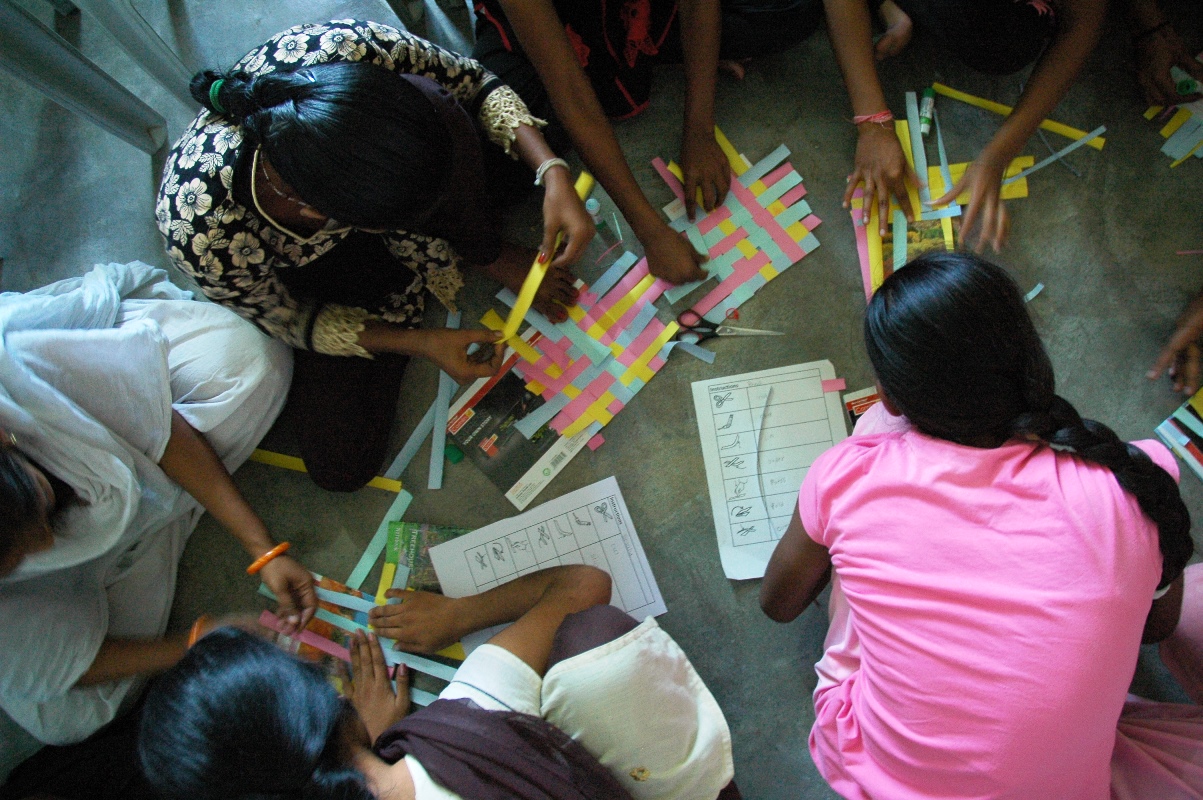
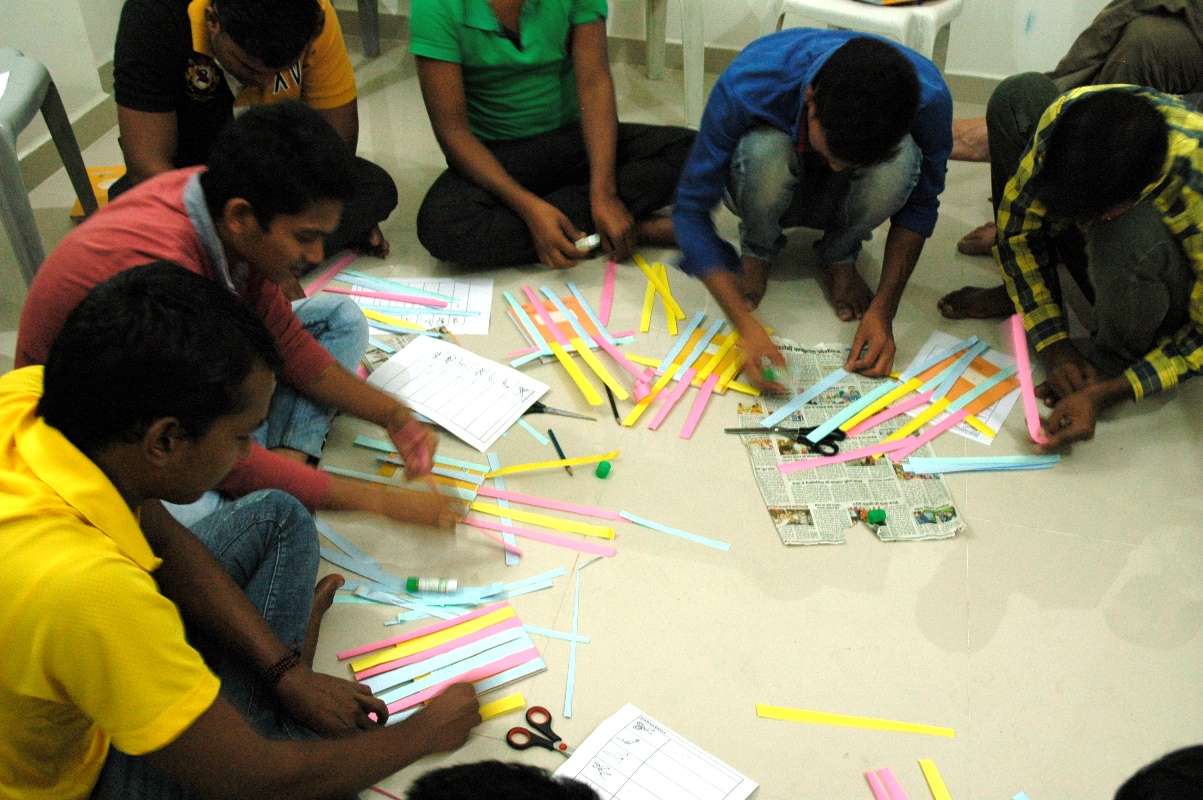
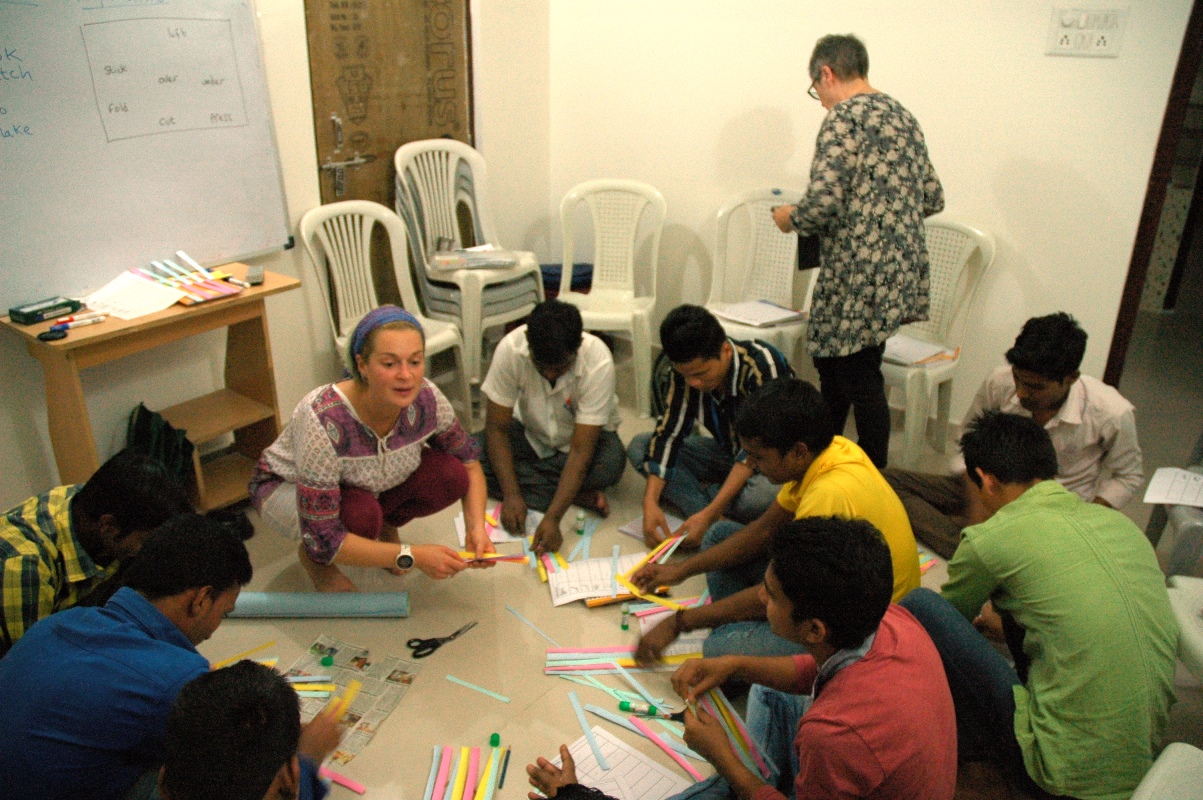
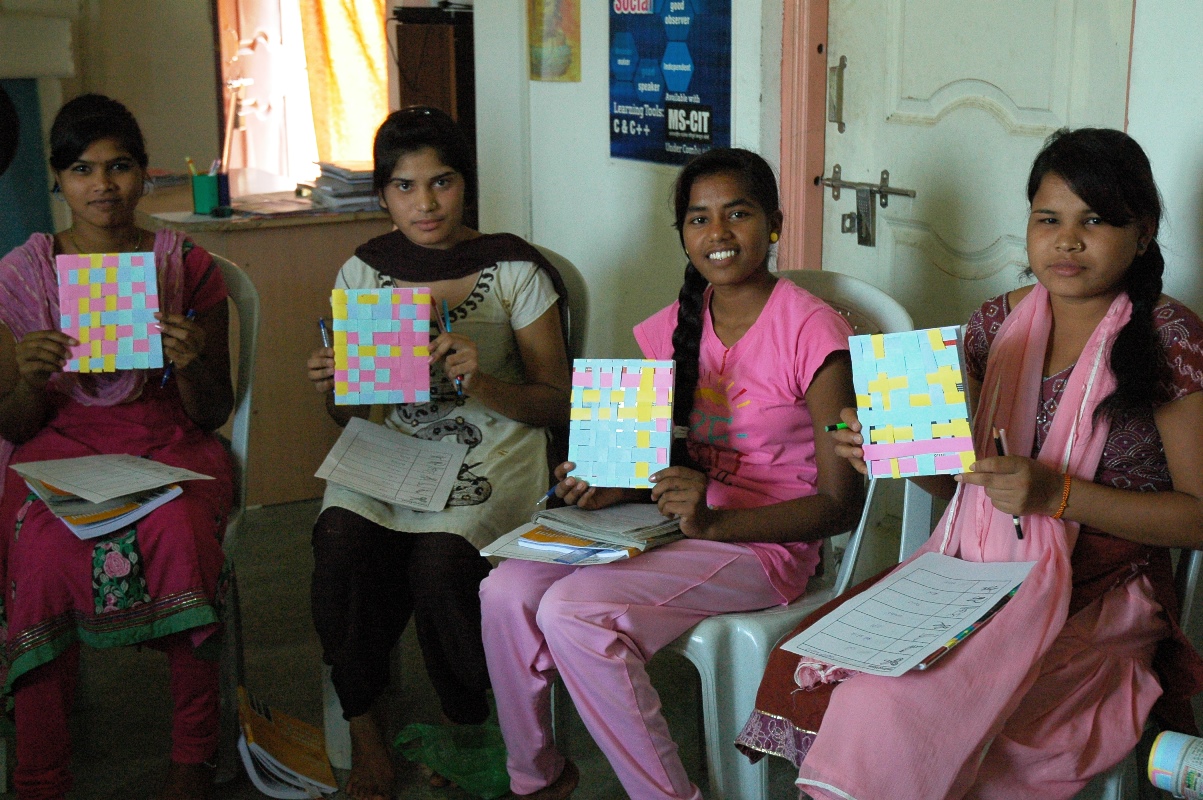
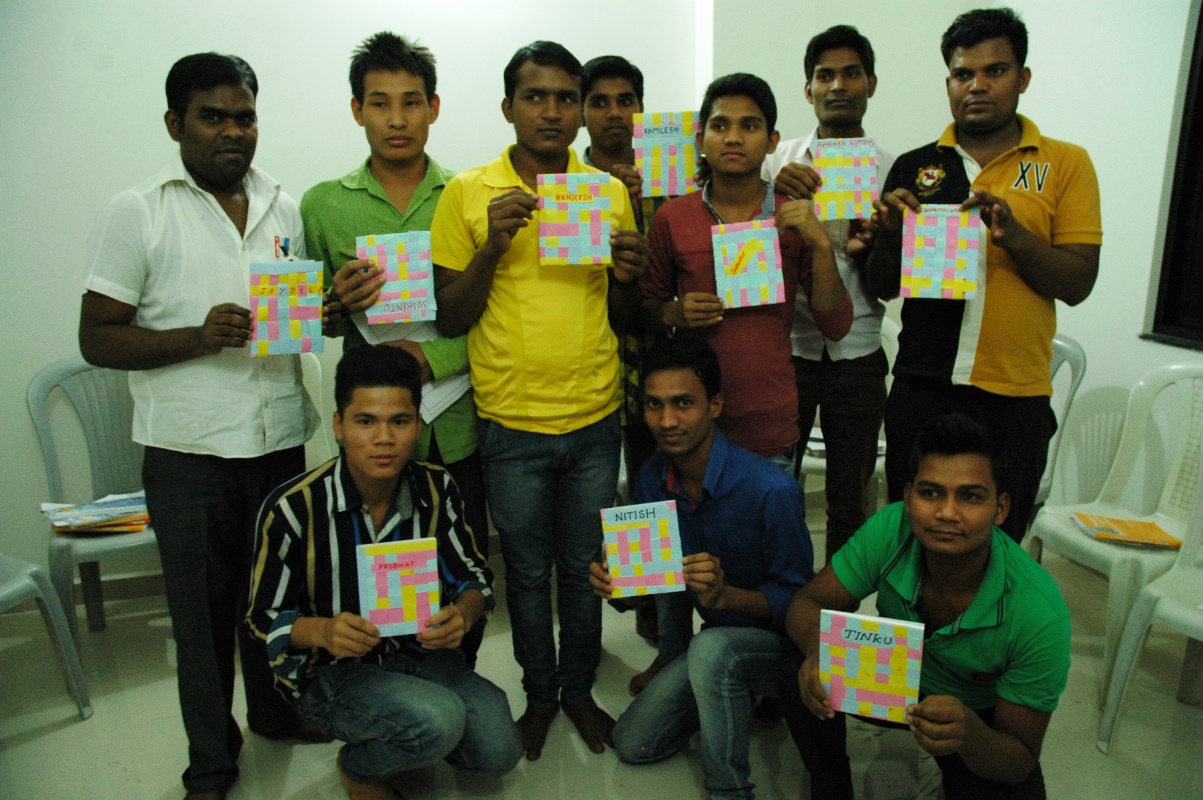
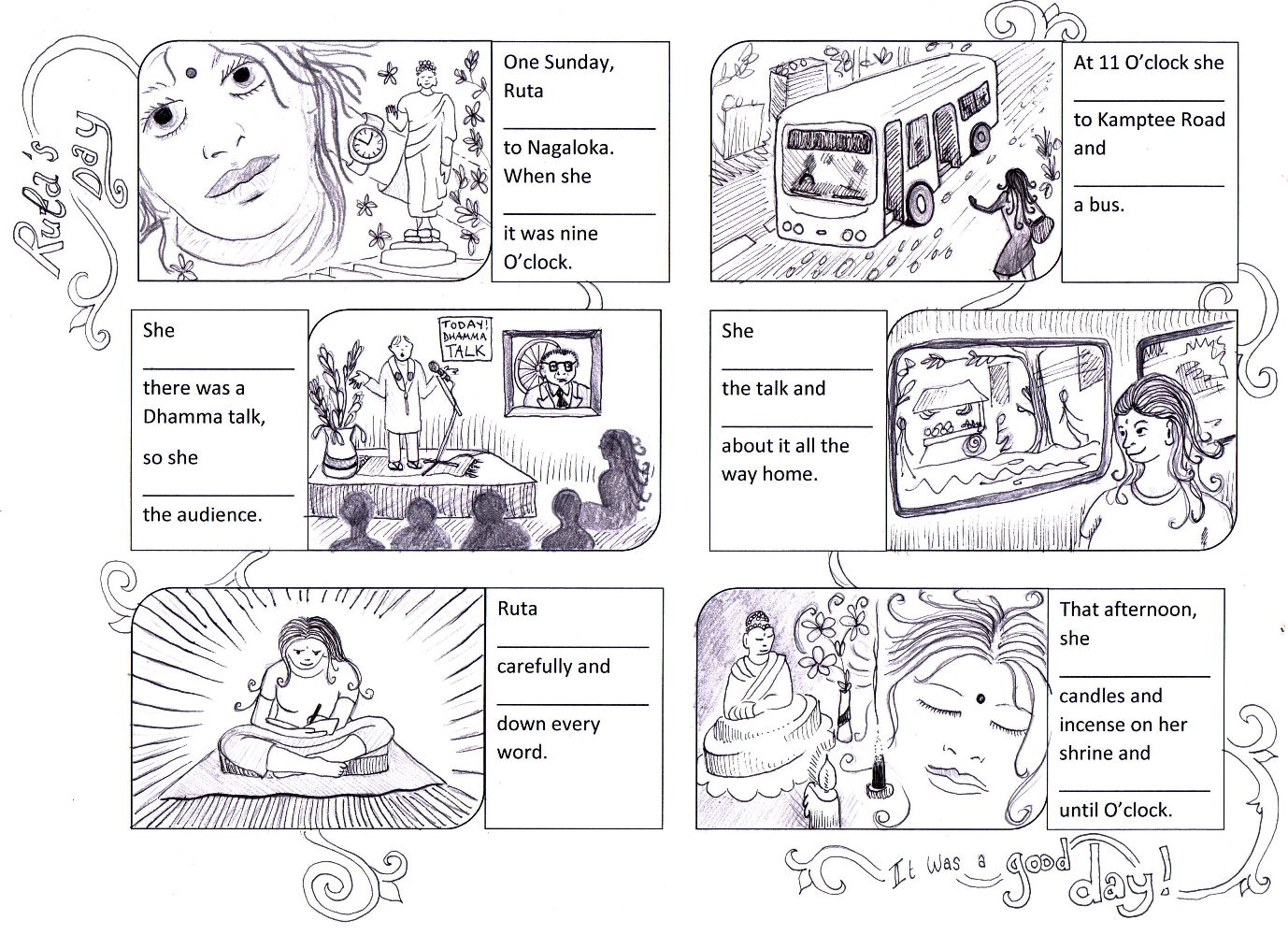




 RSS Feed
RSS Feed
